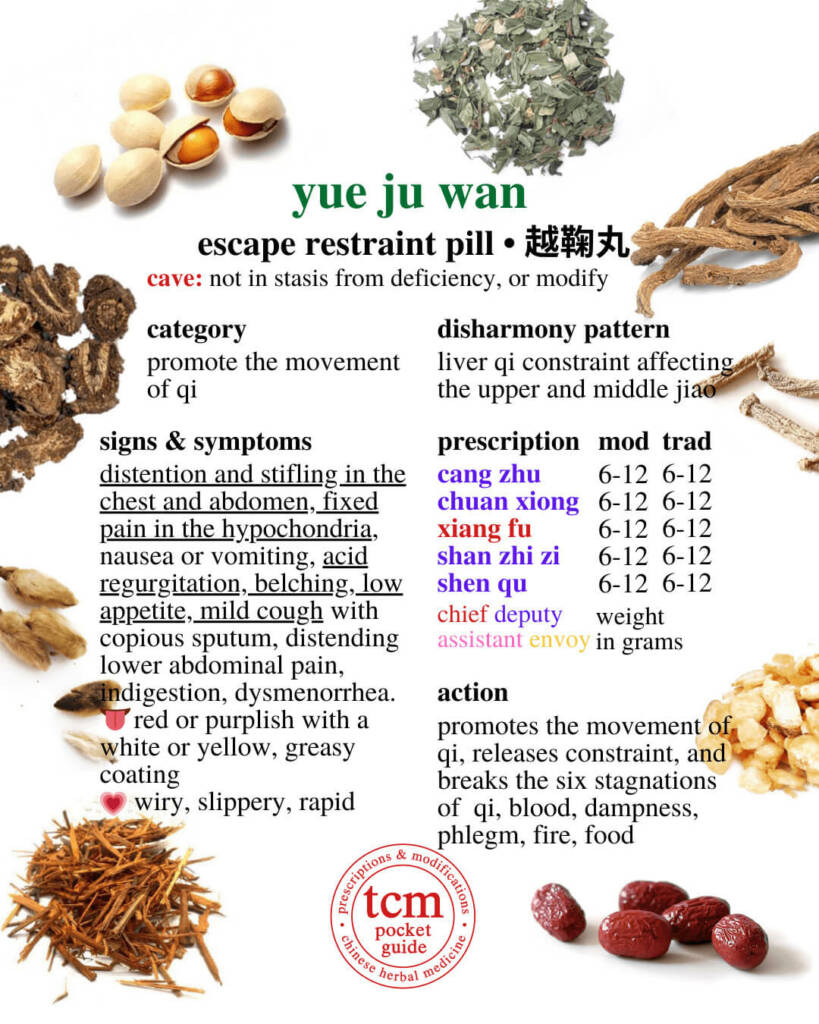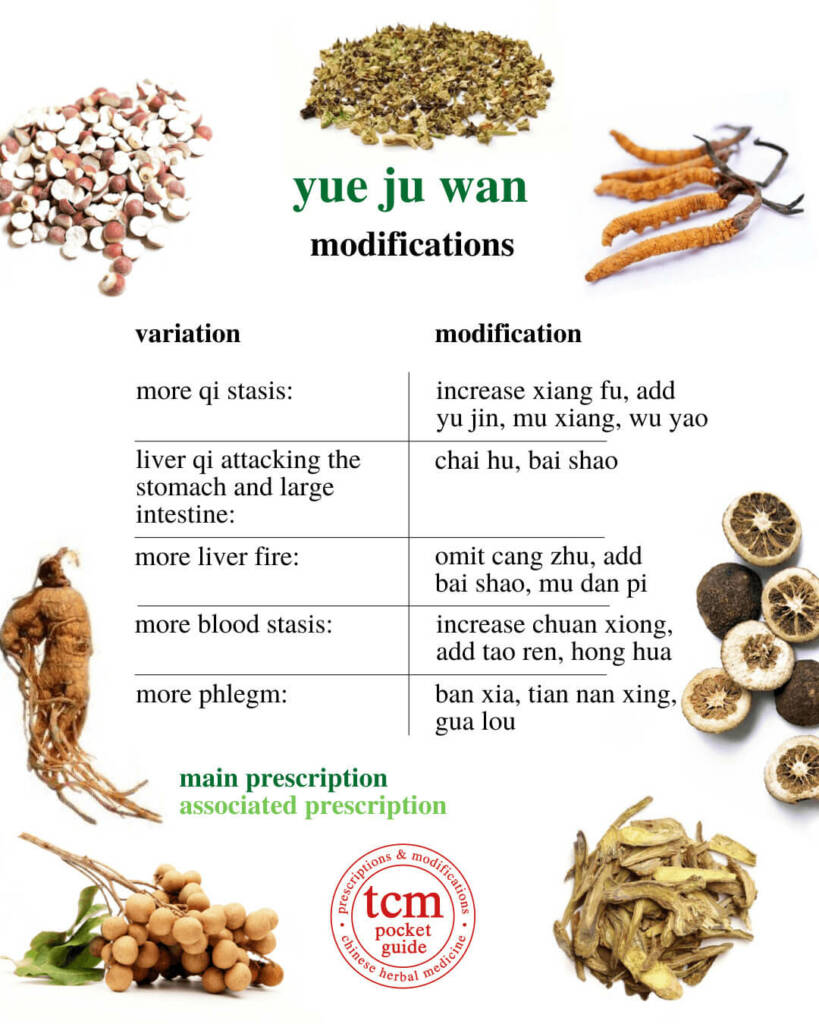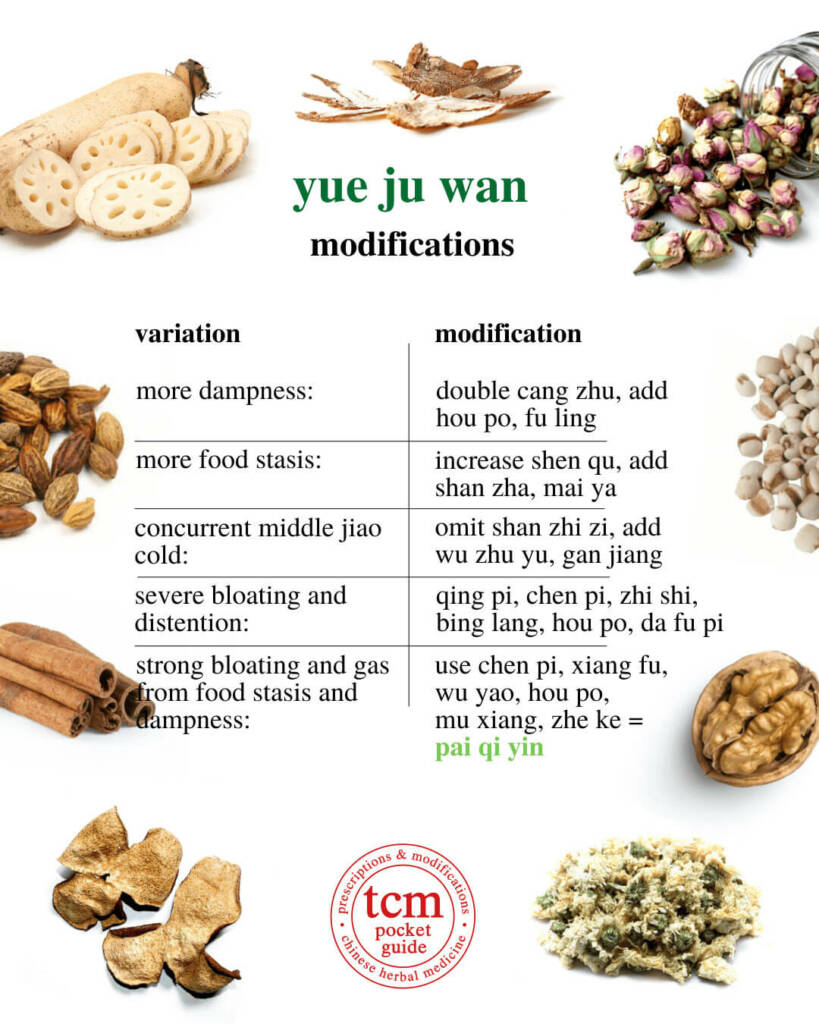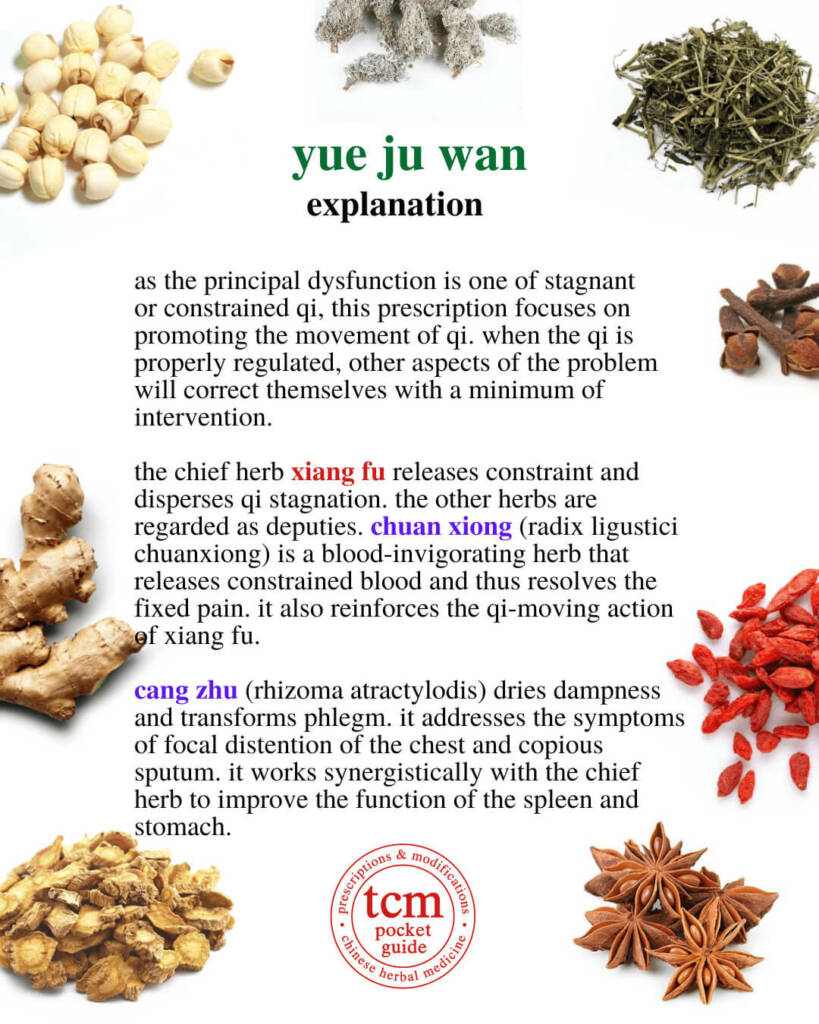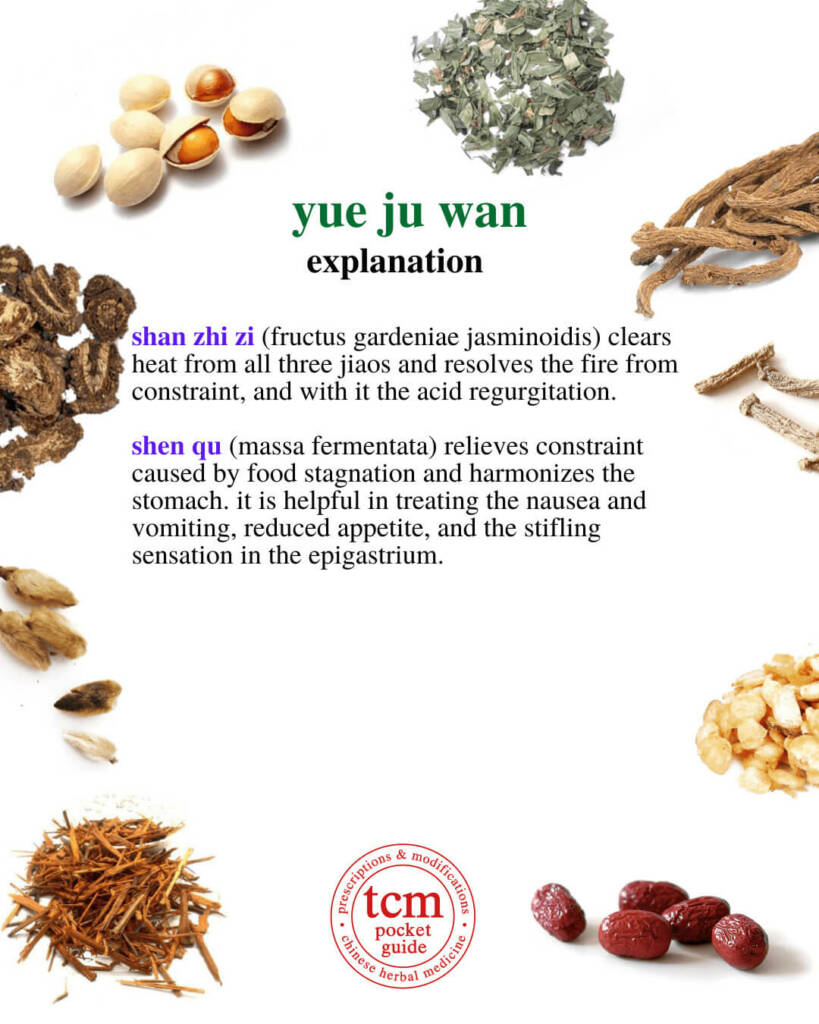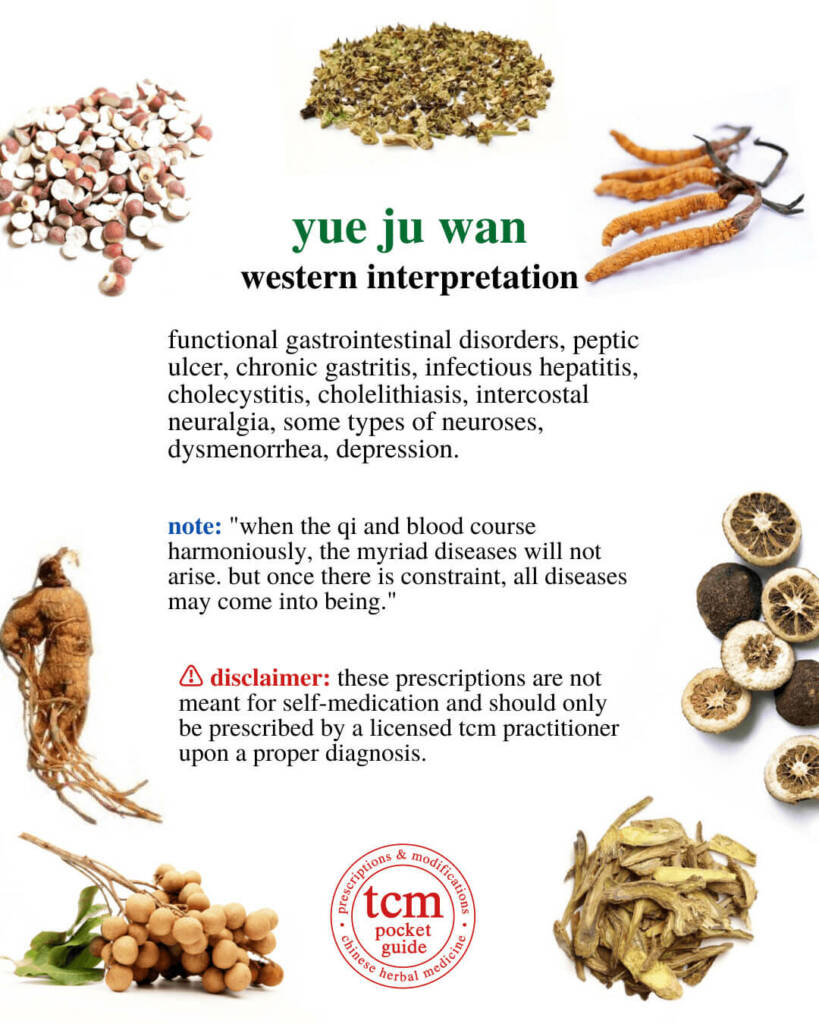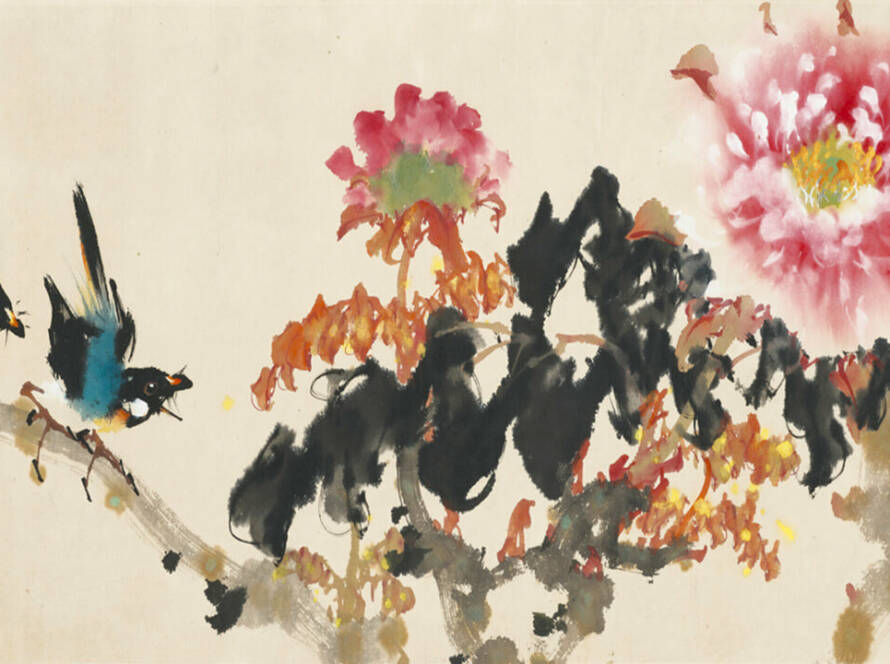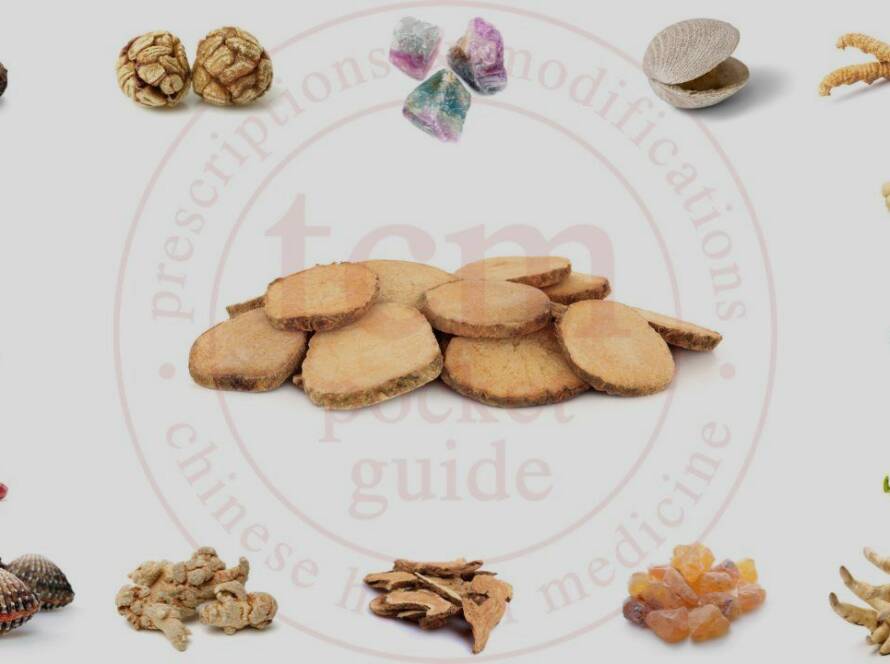yuè jū wán is used for patterns with
all types of stagnation, liver qi stagnation affecting the upper and middle jiao. liver attacking the stomach.
symptoms indicating the use of yuè jū wán
chest and abdominal distention, a stifling sensation in the chest and abdomen, fixed pain in the hypochondria, belching with a fetid odor, nausea, vomiting, epigastric and abdominal fullness and pain, acid reflux, mild coughing with copious sputum, reduced appetite, lower abdominal pain, dysmenorrhea.
western interpretation of yuè jū wán
functional gastrointestinal disorders, peptic ulcer, chronic gastritis, infectious hepatitis, cholecystitis, cholelithiasis, intercostal neuralgia, some types of neuroses, dysmenorrhea, depression.
explanation of the mechanism
this prescription is frequently used in treating mild cases of constraint due to stagnant qi. when the qi functions harmoniously both the upper and lower parts of the body work within their limits, the flow is smooth and without interruption, and disease will not occur.
irregular dietary habits, exposure to excessive cold or heat, and inordinate joy, anger, or anxiety can disrupt the normal flow of qi and thereby give rise to this condition.
the liver acts to ensure the free and unrestrained flow of qi throughout the body. anxiety can disrupt this function by constraining the qi, which manifests as focal distention and a stifling sensation in the chest and abdomen.
the liver is also responsible for storing the blood. when constraint of the liver qi affects the blood, there is a stabbing, fixed pain in the chest and hypochondria.
constraint of the liver qi may also give rise to liver fire, which manifests as a bitter taste in the mouth and acid regurgitation. the disturbances of qi, blood, and fire that are associated with this condition are related to the liver.
disorders of the liver usually affect the stomach and spleen. constraint of the liver qi has an adverse influence on the transportive and transformative func-tions of the spleen, and the descending and ascending functions of the stomach. this in turn will lead to constraint of the middle burner by dampness, phlegm, and food stagnation. manifestations include bloating, indigestion, mild coughing with copious sputum, reduced appetite, nausea, and vomiting.
(bensky & barolet)

created with love in switzerland 🇨🇭
feel free to share this content:


